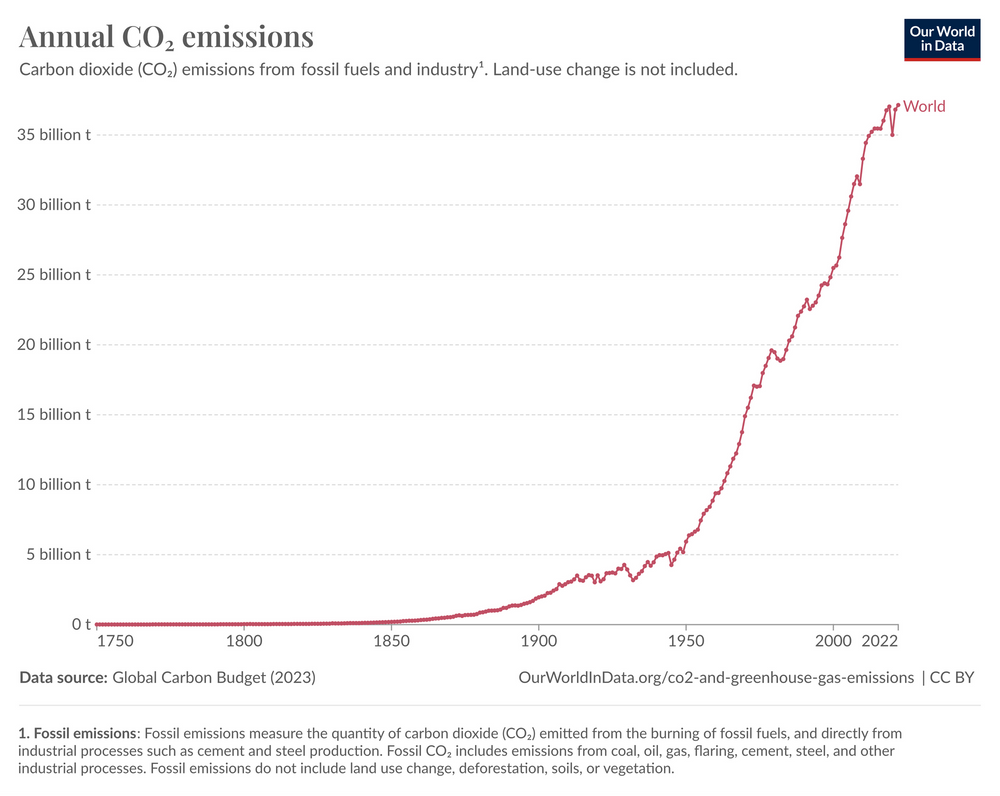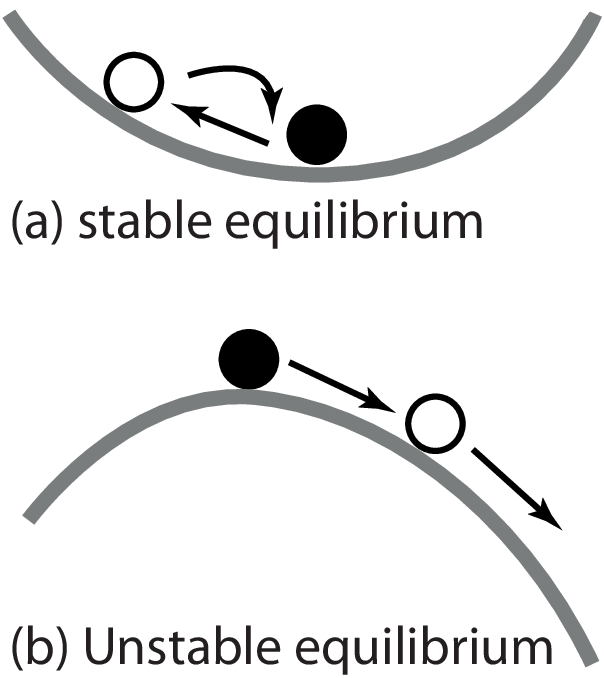In my little bubble of well-off European students, climate change is a big deal. You’ll find the “one computer per family” team, the “it’s the end so I won’t have children” team and of course a few techno-optimists.
Until now, my stance has pretty much been: “It’s too complex, I’m not an expert, I have no opinion” and while I still stand by this, I’d like to share a few thoughts that extend my opinion and make me a little more fun to debate.
At a high level, the narrative I’ve been told on multiple occasions, usually accompanied by the co2 ppm graph goes as follows:
Before the Industrial Revolution things were fine. Then we entered the Anthropocene: an era where Man started to deregulate the natural state of things by producing a lot of co2 which leads to many bad outcomes, most notably the warming of our planet, which then leads to a lot of human suffering. Additionally, at some point, we’ll hit some tipping points from which there is no going back.

The main two ideas I’d like to challenge in this post are that:
- there isn’t such a thing as a stable natural state of the World.
- There are no climate change tipping points.
Weather and the climate are outrageously complex things and I’m not an expert by any means, so my arguments will be mostly through thought experiments and deduction.
There isn’t such a thing as a stable natural climate
Let’s for example assume we find a way to make the ice in the northern hemisphere melt 50% slower during summer, or that extracting co2 from the atmosphere became 10’000 times cheaper. Those would allow us to pretty much reverse climate warming and it would lead us to the next question: when do we stop? What’s the right level of co2?
Glaciers would start to grow again, sea levels would go down. Some places will experience their “worst winter since 50 years” and so on.
I’m wondering what public opinion would be in that case and my intuition would be that it would be pretty much the same: “the technology people are wrong, things were better in the past”.
Another interesting thought is that if the Industrial Revolution had happened three hundred years earlier, we might have avoided the Little Ice Age which also created a lot of pain and suffering!
Saudi Arabia would prefer it if the world temperature was a little lower, Russia would prefer it a little warmer. There is no “right” world temperature.
The climate we’ve been used to is not the “normal” climate, it’s just what we’ve learned to expect. Had the average global temperature been two degrees less for the last thousands of years, we would complain exactly as much about the additional 1.5 degree we’re experiencing now (despite it bringing us to the temperature we consider “normal” today!).
There are no climate change tipping points
The second idea I’d like to discuss is the tipping point idea. That after some point, the melting glaciers lead to warmer summers, which lead to more ice melting, which lead to more melting glaciers and so on… A spiral of climate catastrophe.
Climate can either be a stable equilibrium, or an unstable one: where once the ball starts rolling, it gets worse and worse. I have a very hard time accepting the unstable equilibrium hypothesis. How unlikely would it be that things have been perfectly stable for the last few billion years (clearly they haven’t)?

To me, climate looks much more like a very robust stable equilibrium. As the world gets warmer, more trees start to grow, capturing more of the available co2, leading to a cooldown of the atmosphere, which leads to trees dying and releasing co2, and so on.
Even a huge comet smashing earth didn’t lead to a tipping point. Instead, slowly (and painfully), the climate and life got back on its feet.
What now?
I don’t think it’s reasonable to argue that climate change is bad. Why should it be too cold in Canada and too warm in the Sahara but just right in Europe?
Algeria could argue that we should reduce the global temperature by a few degrees and Norway could argue the other way around. As our ability to control the climate improves, those are real questions we’ll have to face as a society.
Keeping the temperature stable also seems like a very complex challenge that can lead to unexpected side effects (things getting too cold?).
So what do we do?
The reason Norway and Qatar don’t complain about their weather is that they’re rich. Having the means to adapt to change, is the best and only way to deal with a complex and changing atmosphere.
So instead of sending money to poor countries affected by the changing climate, how about removing trade barriers and tariffs? Let us buy the goods and services that they can produce for better & cheaper than what we can do ourselves. Basically, let’s all continue to get richer. It’s the best (and only) solution :)
